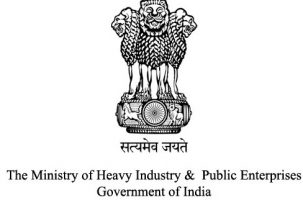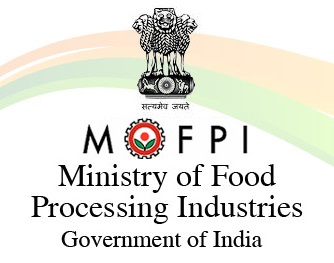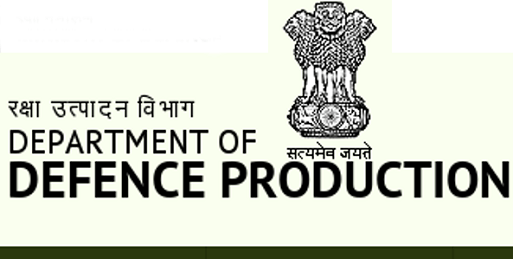The key initiatives of Ministry of Heavy Industries during the year are as under:
Faster Adoption and Manufacturing of Electric Vehicles in India Phase II (FAME India II) Scheme
FAME India II Scheme has been launched with an outlay of Rs 10,000 crore to incentivize demand for Electric Vehicles (EVs) by providing upfront subsidies and creating EV charging infrastructure. 1 million Electric 2 Wheelers, 5 lakh Electric 3 Wheelers, 55,000 Electric Cars and 7,090 Electric Buses are to be supported under FAME II through subsidies. Allocation of Rs 1000 crore has also been made under FAME II for provision of EV charging stations.
FAME India II Scheme was redesigned in June 2021 based on experience particularly during Covid-19 pandemic and feedback from industry and users. The redesigned scheme aims at faster proliferation of Electric Vehicles by lowering the upfront costs. The scheme has been extended for a further period of 2 years i.e. upto March 31, 2024
Achievements under FAME India II scheme in this year
-
- Till 06th December 2022, Total 6.63 Lakh e-2W, 70,159 e-3 W, 5375 e-4 W and 3738 e-buses have received incentives of about Rs. 3,305.00 Crore under FAME India Scheme Phase-II.
- Various STU’s/CTU’s/ Municipal corporations have been placed Supply Orders for 3538 e-buses against quantities sanctioned by MHI. Out of those, 2296 e-buses have been deployed till Dec, 2022. Further, another 3,472 e-buses tender is being processed by Convergence Energy Services Ltd. (CESL) under the aggregation model of NITI Aayog. Thus, under FAME-II scheme, a total of 3738+3472=7210 e-buses will be eventually deployed in the various States.
- 2877 EV charging stations have been sanctioned and Letters of Award have been issued to 1822 EV charging stations. Total 1576 charging stations are sanctioned across 9 Expressways and 16 Highways. Total 83 EV charging stations have been commissioned till December 2022.
- The sale of 7,39,388 electric vehicles results in saving of 18.75 liters of fuels, reduction of 42.66 Cr kg. CO2.
National Programme on Advanced Chemistry Cell (ACC)
Union Cabinet on May 12, 2021 approved the National Programme on Advanced Chemistry Cell (ACC) with an outlay of Rs 18,100 crore to incentivize setting up of manufacturing facilities in the country for 50 Giga Watt Hour of ACC and 5 GWh of “Niche” ACC. The scheme was notified on June 9, 2021
Through this Scheme, the Government intends to optimally incentivize potential investors, both domestic and overseas, to set- up Giga-scale ACC manufacturing facilities with emphasis on maximum value addition and quality output and achieving pre-committed capacity level within a pre-defined time-period.
Total investment of Rs 27,000 crore is envisaged under this scheme. Net saving of Rs. 2,00,000.00 Crore to 2,50,000.00 crore on account of oil import bill reduction due to EV adoption.
Three of the approved firms under the scheme has signed the Programme Agreement to implement the PLI ACC programme for setting up manufacturing facilities of 30 GWh ACC capacity.
Through this scheme total 2.7 lakh direct and indirect employment may be generated.
Productivity Linked Incentive (PLI) scheme for Automobile and Auto Components
The Government approved the Production Linked Incentive (PLI) Scheme for Automobile and Auto Component Industry in India for enhancing India’s Manufacturing Capabilities for Advanced Automotive Products (AAT) with a budgetary outlay of ₹25,938 Crore. This Scheme proposes financial incentives to boost domestic manufacturing of Advanced Automotive Technology (AAT) products and attract investments in the automotive manufacturing value chain. The prime objectives of this scheme include overcoming cost disabilities, creating economies of scale and building a robust supply chain in areas of AAT products.
The scheme and its guidelines were notified on 23rd September 2021. The scheme has two components viz. Champion OEM Incentive Scheme and Component Champion Incentive Scheme. The application window was opened from 11th November 2021 to 9th January 2022 for 60 days’ period.
A total of 115 companies had filed their application under this scheme. Out of 115, total 85 applicants have been approved under this PLI scheme – 18 applicants for Champion OEM Incentive scheme and 67 applicants have been approved under Component Champion Incentive scheme. Two Auto OEM companies have been approved for both the part of the scheme. The scheme has been successful in attracting proposed investment of ₹67,690 crore against the target estimate of investment ₹42,500 crore over a period of five years.
The PLI scheme for Automobile and Auto Component Industry has been a huge success in terms of the applications received from local as well as globally headquartered groups engaged in/ proposing to manufacture Advanced Automotive Technology vehicles/products. Apart from Indian business groups, approved applicants for Champion OEM Incentive scheme include groups from countries such as Republic of Korea, USA, Japan, France, Italy, UK and Netherlands. The overwhelming response shows that Industry has reposed its faith in India’s stellar progress as a world class manufacturing destination which resonates strongly with Prime Minister’s clarion call of Atma Nirbhar Bharat – a self-reliant India.
Ministry of Heavy Industries launched Automated Online Data Transfer for capturing critical data related to Domestic Value Addition (DVA) from the PLI applicant’s ERP (Enterprise Resource Planning) system to PLI Auto Portal on 11.08.2022. The Application Programming Interface (API) enabled system has been devised to enable smooth transfer of a set of predefined data from the beneficiaries existing ERP system to the Ministry’s Portal in a safe environment and seamless manner. The API will get embedded with ERP system of the applicant and will enable automaticity and paperless processing in this scheme along with traceability of product based on digital footprints. This facility eliminates that voluminous paper work by bringing in automation. This IT enabled system will reduce compliance burden on the part of the applicants on the one hand and it will enable faster processing of claim on the other hand. Keeping with the principle of Atma Nirbhar Bharat, the product wise final DVA is automatically calculated and pushed to the Ministry’s portal through API, without encroaching on the Non-Disclosure Agreements (NDA) of the beneficiary companies of PLI Auto. The initiative taken by MHI will be an important step in enabling transparency, ease of doing business, faceless and self-certification based assessment and paperless delivery.
National Automotive Board (NAB)
The two Autonomous societies of MHI i.e. NATRIP Implementation Society (NATIS) & National Automotive Board (NAB) held its Governing Council (GC) and Annual General Body Meeting (AGM) on 02.11.2022 to, inter alia, approve amalgamation of NATIS with NAB under the provisions of Section 12 of the Societies Registration Act, 1860. Now, the three Testing Centers created under NATRIP Project – International Centre for Automotive Technology (ICAT), Manesar, Global Automotive Research Centre (GARC), Chennai and National Automotive Test Tracks (NATRAX), Indore will come under NAB.
ICAT, Manesar has signed an MoU with M/s. Toyota Kirloskar Motors Ltd (TKML) on 16th March 2022 to evaluate the world’s most advanced Fuel Cell Electric Vehicle (FCEV) Mirai, which runs on Hydrogen fuel. This is first of its kind project in India aimed at R&D and spreading awareness about Hydrogen Fuel Cell Technology and disseminate its benefits across masses. This evaluation will be conducted over a period of 2 years.
NATRAX, Indore has been approved for Crash Testing of Metal Beam Crash Barrier by NHAI under MORTH on 30th May 2022. This approval will help NATRAX to earn additional revenue. Thus testing of Metal Beam Crash Barrier will now be carried out in India as per safety requirements conforming to Indian Road and traffic conditions. The centre is also accredited by NABL on 14th May 2022 and international accreditation (through NABL) was received in end of May 2022. So far NATRAX has completed 67 carts tests for 10 plus clients as per EN1317 and MASH.
ICAT, Manesar has signed MOUS with South Korea’s KATECH (leading government test agency), KIAPI (a research institute in the Auto sector), and DT&C (test laboratory) on 15th to 17th November, 2022. Main objective of this MOU is to provide Indian CMVR certification services to customers based in South Korea and other countries. The association will enable ICAT to develop certification and non-certification activities from South Korean Automotive Component Manufacturers. This may also enable mutual co-operation in the field of future automotive technologies like ADAS, Connected vehicle etc.
GST Concession Certificate
Issue of GST Concession Certificate to orthopedically disabled persons is one of the important services provided by MHI under its Citizen’s Charter. As a step towards Digital India, an online portal for issuing Aadhar Authenticated GST concession certificate was launched by MHI in November 2020. The development of online portal has improved the quality of service rendered by this Ministry. This IT enabled initiative has helped streamlining the process and facilitated issue of 2409 GST Concession Certificates in 11 months’ period from January 2022 to December 2022 (till 05.12.2022) (highest ever in the last five-year period). A total of 4351 GST Concession Certificates were issued in last two years through this portal.
Scheme on Enhancement of Competitiveness in The Indian Capital Goods Sector- Phase-II
On January 25, 2022, the Ministry of Heavy Industries (MHI) has notified the Scheme on Enhancement of Competitiveness in The Indian Capital Goods Sector- Phase-II for providing assistance to Common Technology Development and Services Infrastructure.
The scheme has a financial outlay of Rs. 1207 crores with budgetary support of Rs.975 crore and Industry Contribution of Rs.232 crore. There are six components under the Scheme for Enhancement of Capital Goods Sector Phase II, namely:
- Identification of Technologies through Technology Innovation Portals;
- Setting up of four New Advanced Centres of Excellence and augmentation of Existing Centres of Excellence;
- Promotion of skilling in Capital Goods Sector–creation of Qualification packages for skill levels 6 and above;
- Setting up of four Common Engineering Facility Centres (CEFCs) and augmentation of existing CEFCs;
- Augmentation of Existing Testing and Certification Centres;
- Setting up of ten Industry Accelerators for Technology Development
A total of 28 projects with the Project Cost of Rs.909.47 crores have been approved so far under the Phase-II of the Scheme for Enhancement of Competitiveness in the Indian Capital Goods Sector.
Other Initiatives:
- A one-day Conference on Industry 4.0 with theme “Industry 4.0 -Challenges Ahead” was held on 7th October 2022 at Kevadia, Gujarat. The event was chaired by Dr. Mahendra Nath Pandey, Union Minister for Heavy Industries and was also attended by Shri Bhupendra Patel, Hon’ble Chief Minister, Gujarat and Shri Krishan Pal Gurjar, MoS for Heavy Industries. The deliberations in the Conference has emphasized upon faster adoption of Industry 4.0 on a larger scale and making India a manufacturing powerhouse. More than 200 participants from various industries, Academic institutions, research institutes, skill councils etc. from various parts of the Country attended the event and more than 15,000 attended the Conference through online mediums. The event was well appreciated by the participants as it also provided them an opportunity to interact and share their experiences with the experts from Industry, Academic and Research Institutes etc. The event also witnessed the flagging off the 175 Electric Buses for the States of Gujarat and Karnataka by Dr. Mahendra Nath Pandey, Minister for Heavy Industries.
- On 27th June, 2022, Ministry of Heavy Industries has signed an MoU with Ministry of Skill Development and Entrepreneurship (MSDE) in the august presence of Dr. Mahendra Nath Pandey, Minister of Heavy Industries and Shri Dharmendra Pradhan, Minister of Skill Development and Entrepreneurship. The MoU is focused on facilitating strategic partnership between MHI and MSDE for imparting skilling of level 6 and above in several engineering trades through Qualification Packs developed under Scheme for Enhancement of Competitiveness in the Capital Goods Sector Phase II.
- MHI under the Scheme for Enhancement of Competitiveness in the Indian Capital Goods Sector- Phase 2 is setting up a Common Engineering Facility Centre (CEFC) for skilling in welding technologies at WRI, BHEL Trichy. The Centre shall facilitate to skill 5000 welders annually, in basic & advanced welding technologies, of different National Skills Qualifications Framework (NSQF) levels ranging from Level 3 to Level 6. This CEFC through multiple BHEL units will impart skilling in advanced welding technologies in addition to conventional welding technologies and will cater to all the welding needs of the industries across all sectors. On 17th September, Dr Mahendra Nath Pandey, Minister Heavy Industries inaugurated the first Centre for skilling in welding technologies at BHEL, Varanasi. The Welding School will play a seminal role in skilling the youth in and around Varanasi to meet the requirements of domestic Industries in India as per vision of Prime Minister, Shri Narendra Modi for achieving the goal of AatmaNirbhar Bharat.
- An MoU was signed between Central Manufacturing Technology Institute (CMTI) and M/s Thales, France on 31st March, 2022 in the presence of Minister for Heavy Industries and MoS for Heavy Industries. Both CMTI and M/s Thales, France have identified potential opportunity areas to collaborate to develop open-source hardware and software technology components in India. This collaboration would be helpful on indigenous development of hardware and having complete control on the behavior of the processor tailor made to software applications, which is not doable with proprietary hardware.
- After successful implementation of RMDP, Nepa Mill was inaugurated on 23.08.2022 by Minister (HI) and the company has also started commercial production. With the implementation of RMDP, the production capacity of Nepa Ltd has increased from 88,000 TPA to 1,00,000 TPA and the company is also going to diversify into writing and printing paper production along with the newsprint.





